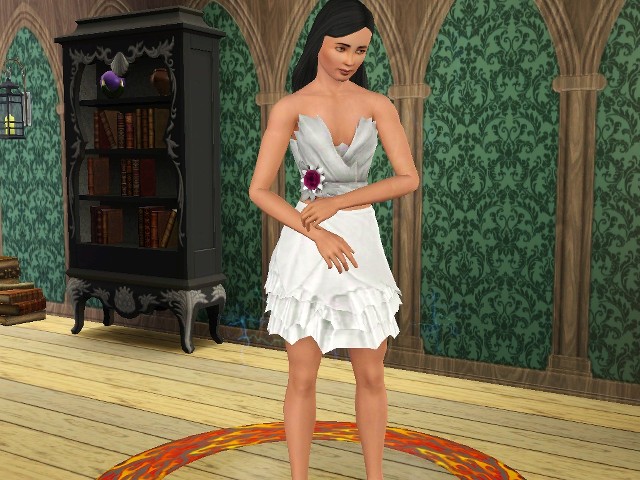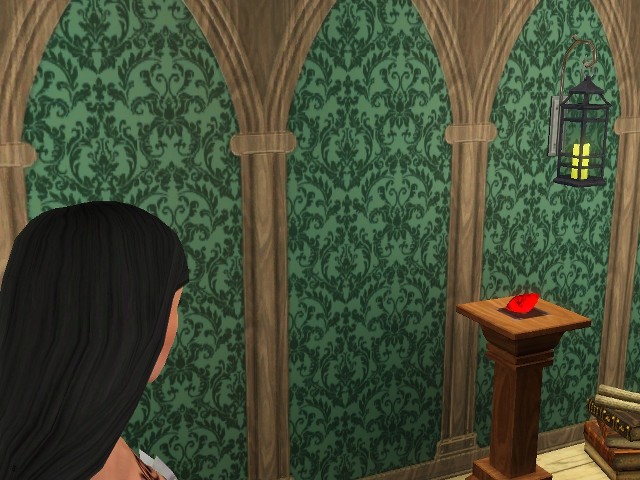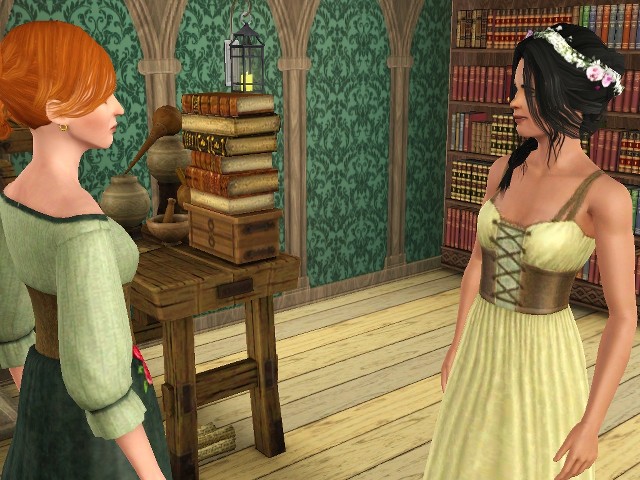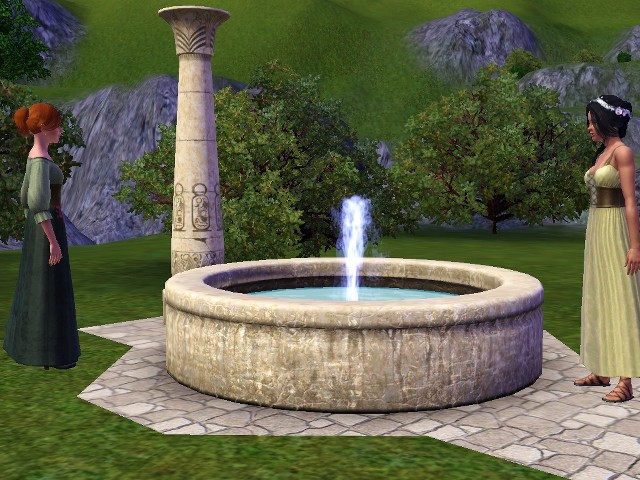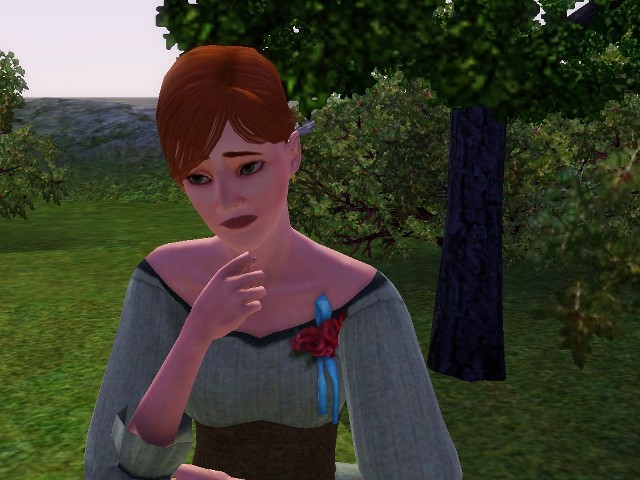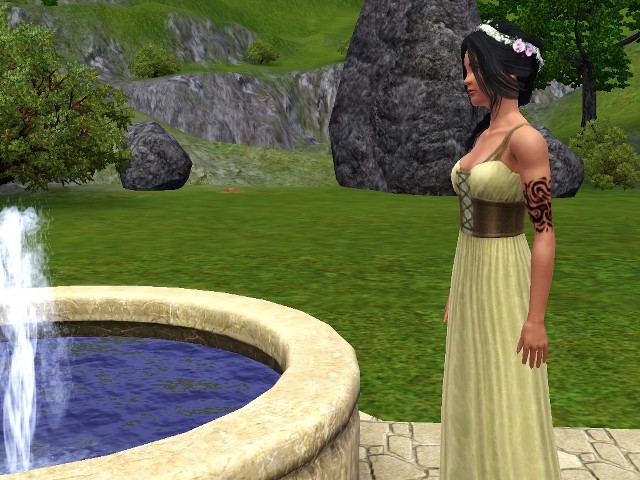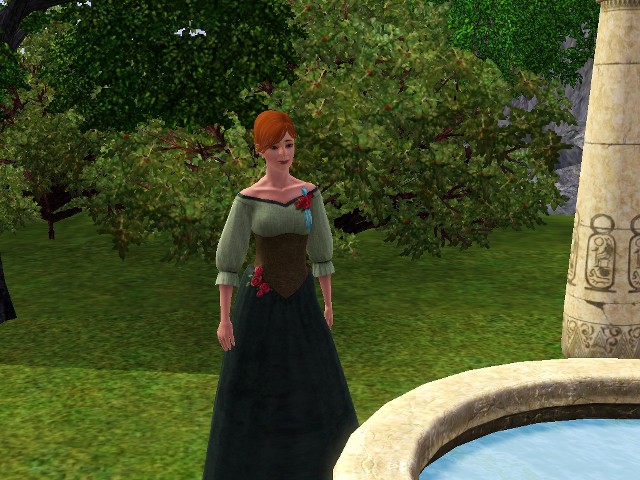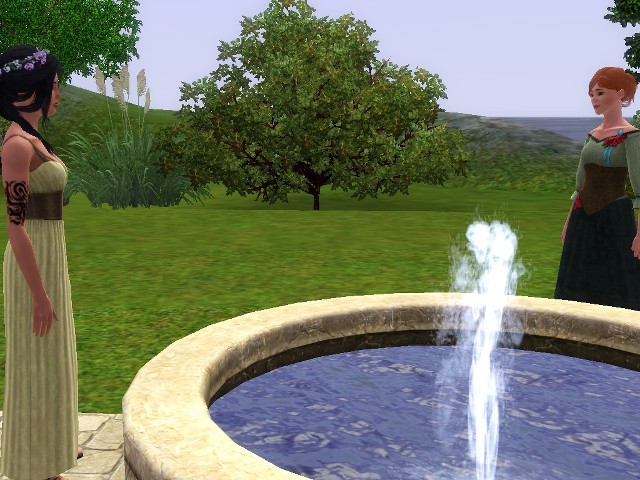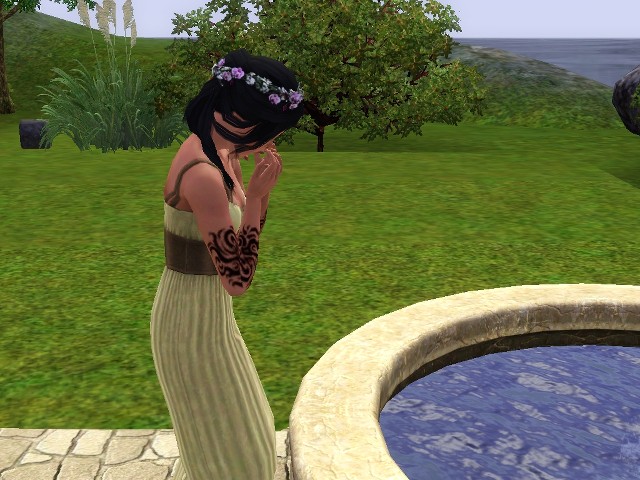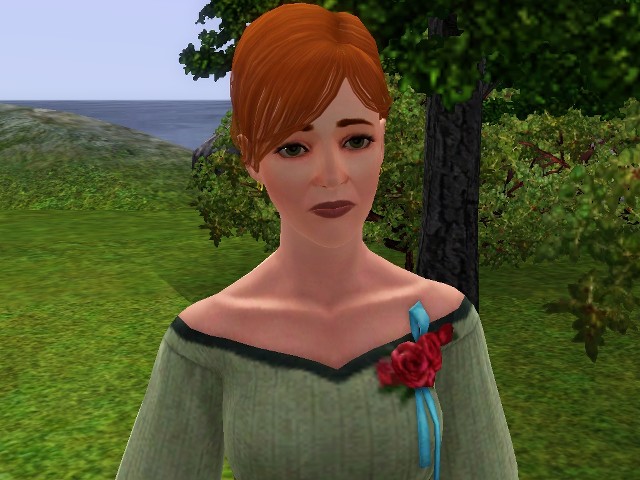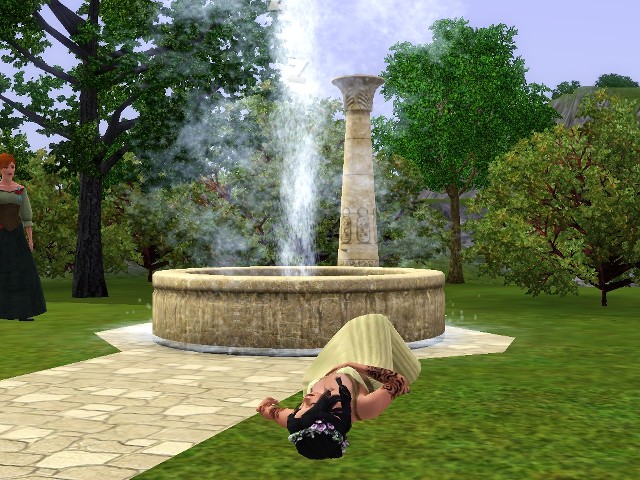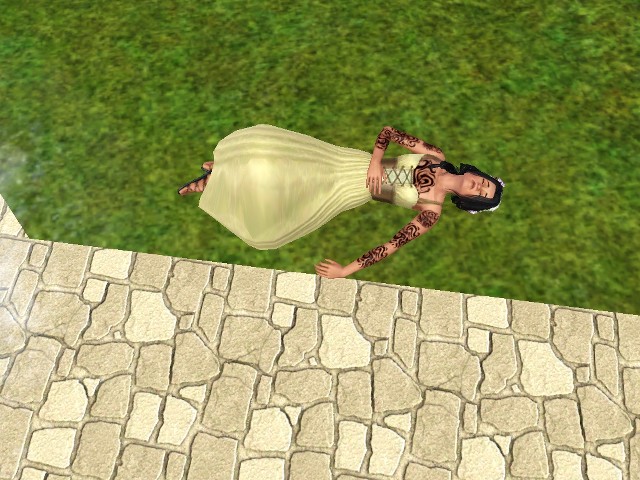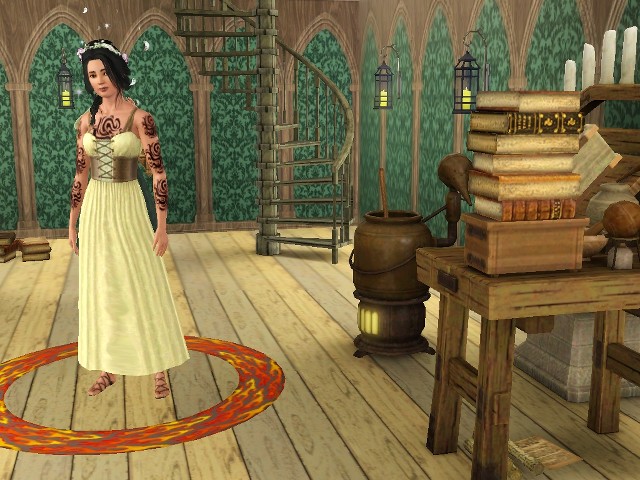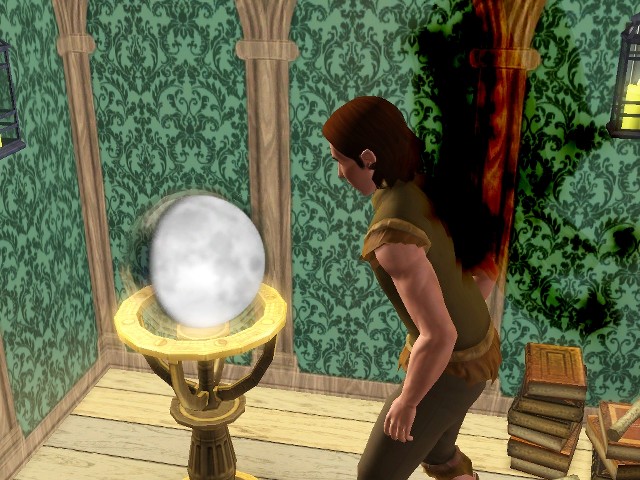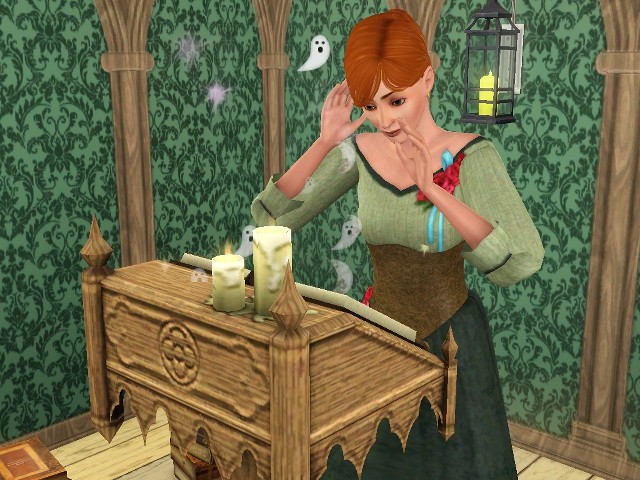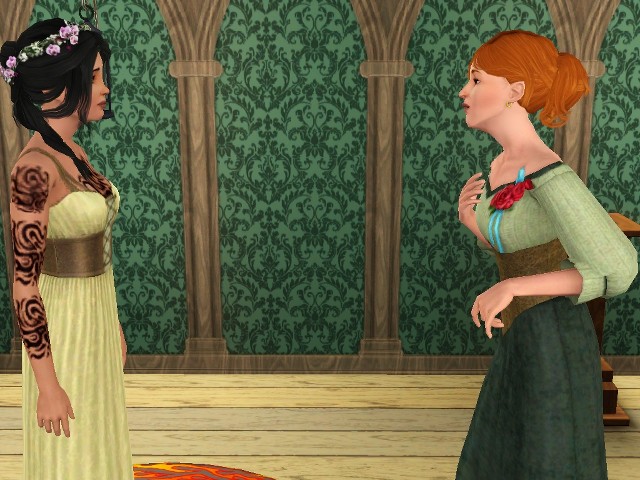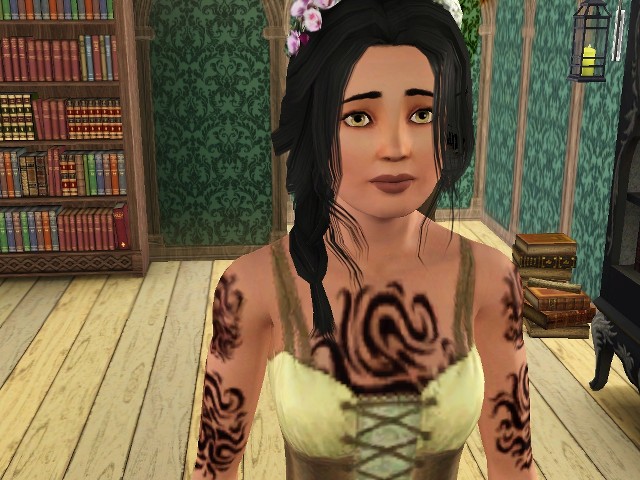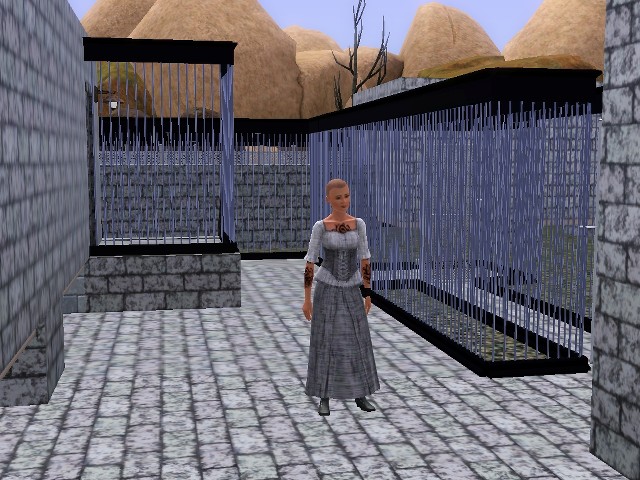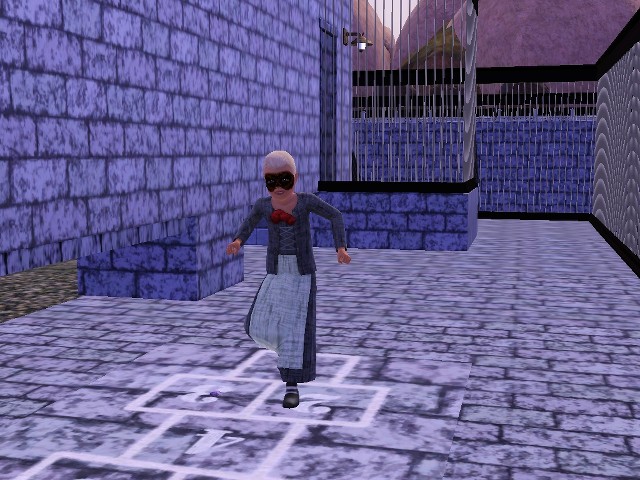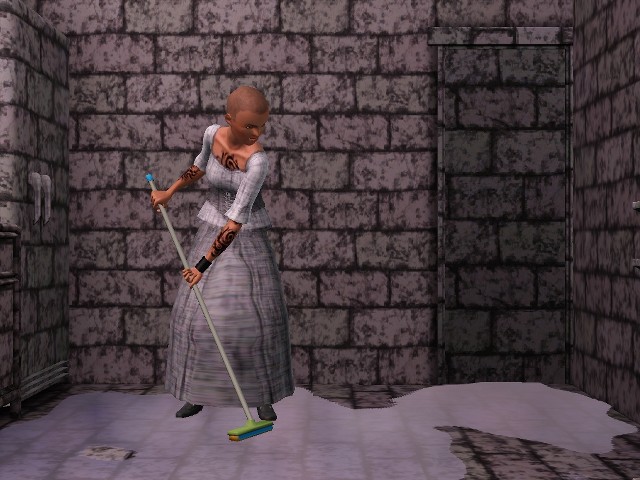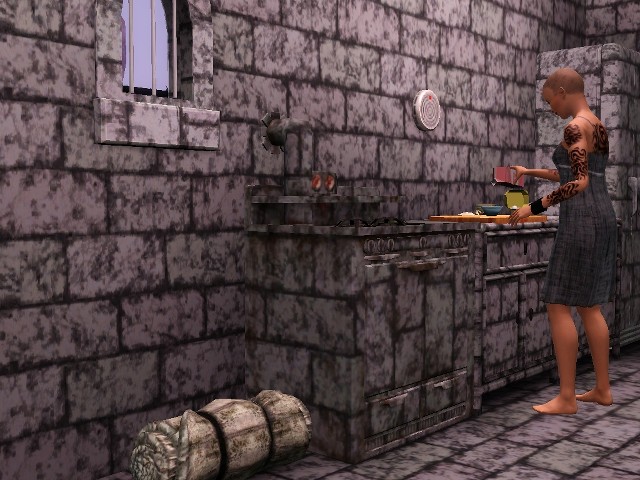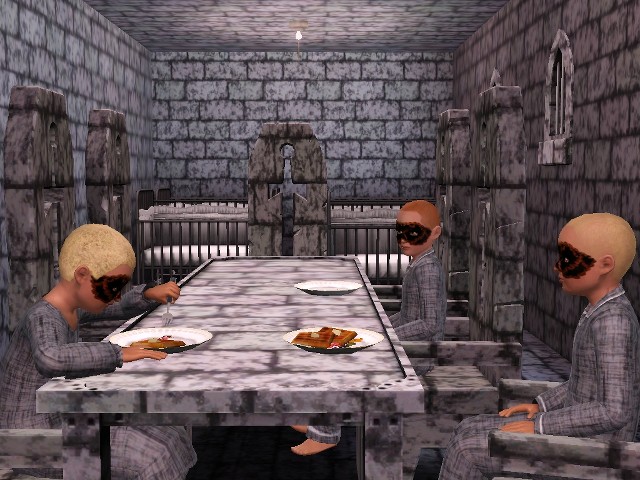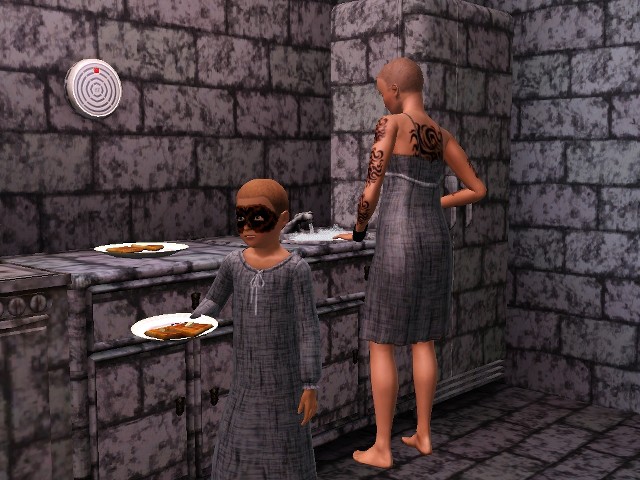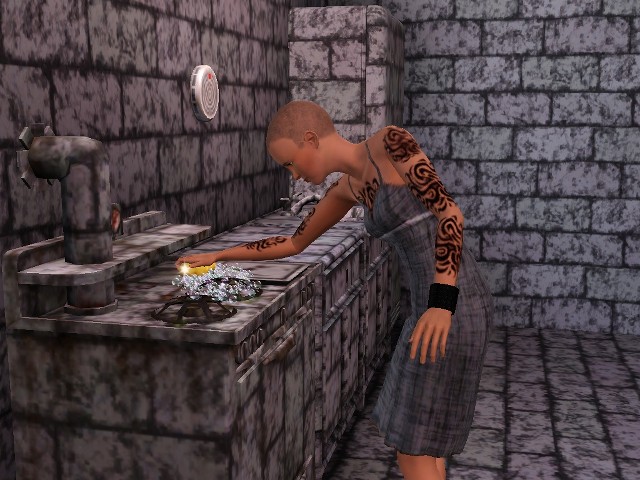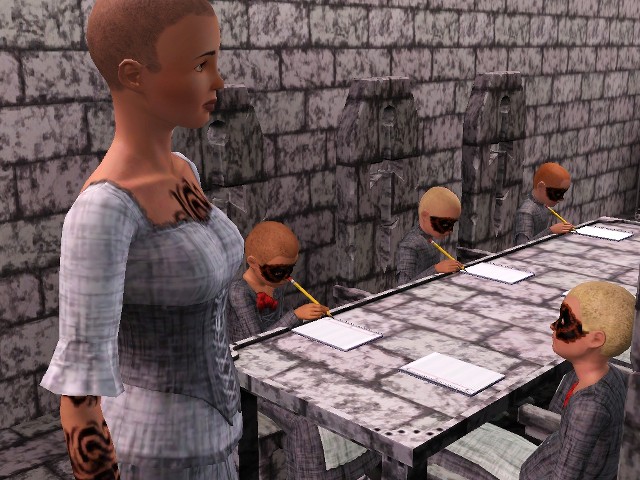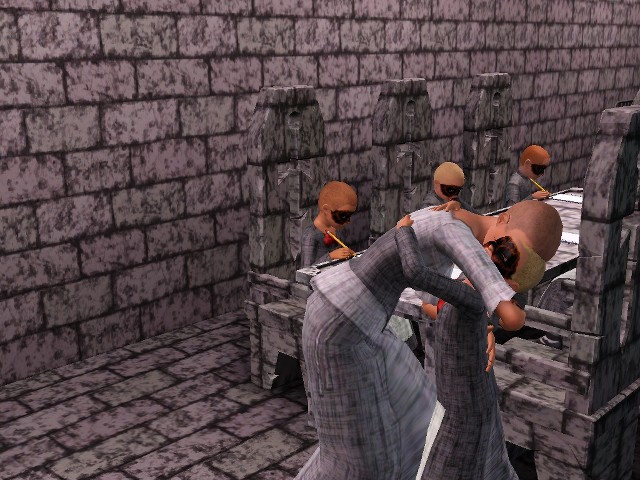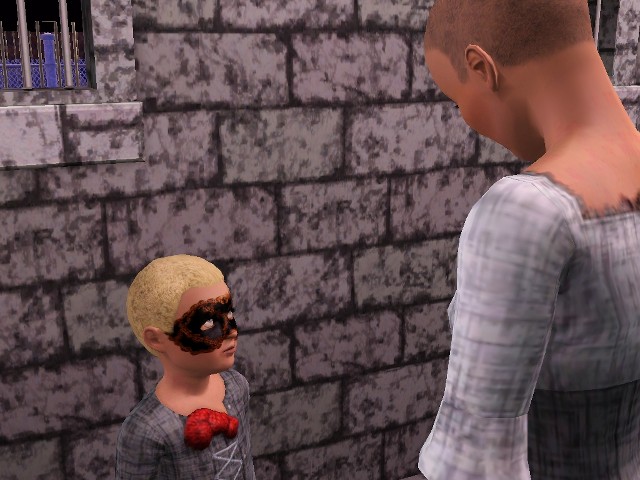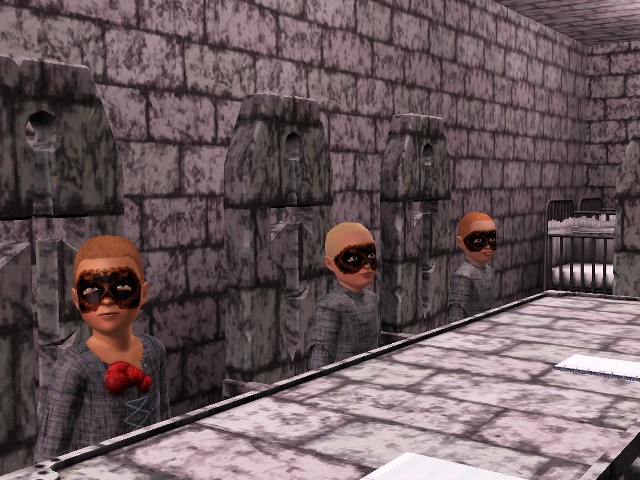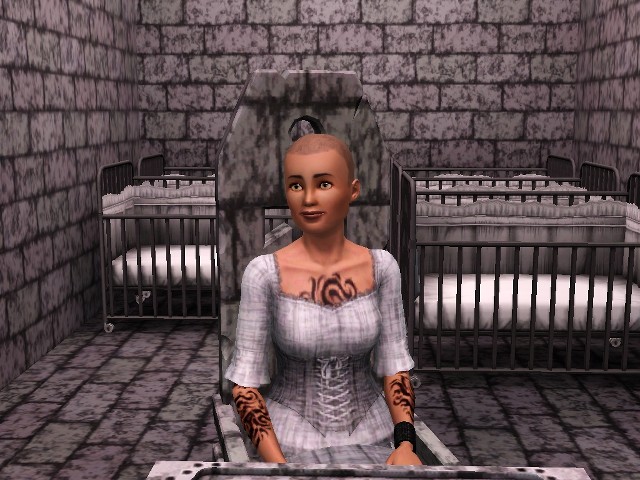 After the children had gone to bed, Salvia sat for a while, thinking about them. She could – she would – find names for each of them. She’d promised them that she would do that: she was going to keep her promise. Although Salvia didn’t realise it, she had changed a lot since the night she’d wrecked Rubia’s garden. The Salvia who’d still had her wings would have airily promised and then done nothing at all about it.
After the children had gone to bed, Salvia sat for a while, thinking about them. She could – she would – find names for each of them. She’d promised them that she would do that: she was going to keep her promise. Although Salvia didn’t realise it, she had changed a lot since the night she’d wrecked Rubia’s garden. The Salvia who’d still had her wings would have airily promised and then done nothing at all about it.What else could she do with the children to make their life a little brighter? There was a bookshelf – with a reasonable number of books on it – but she’d never seen the children go near it. Yet they could read. She had a sneaking suspicion an earlier Roku might have forbidden it. From what she’d learnt so far, all the Roku seemed to have been a bit less than kind.
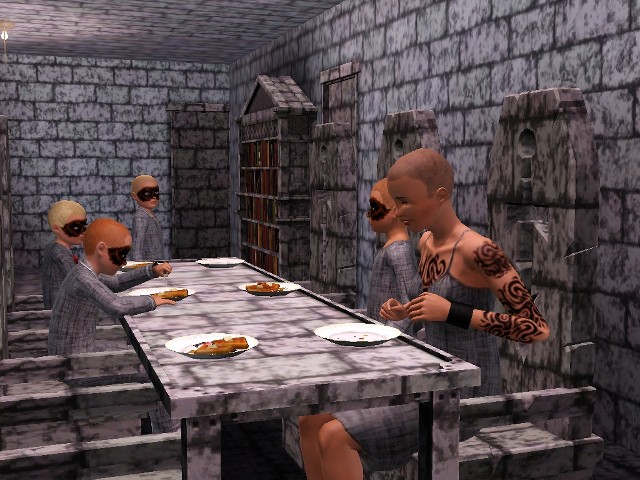 Salvia was beginning to feel a bit more in control. She actually had breakfast ready and on the table for the children when they got up. And Primrose was definitely beginning to look a little happier, even if the other four remained as solemn as ever.
Salvia was beginning to feel a bit more in control. She actually had breakfast ready and on the table for the children when they got up. And Primrose was definitely beginning to look a little happier, even if the other four remained as solemn as ever.
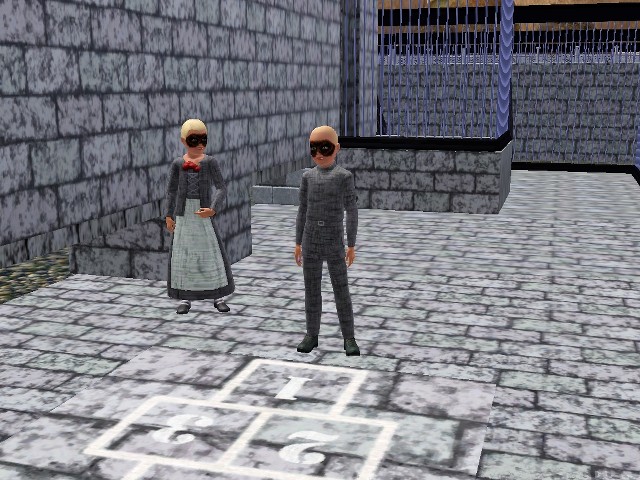 And later on, Salvia saw Primrose encouraging Shi to come and play hopscotch with her. He looked a little uncertain at first, but she was very persuasive.
And later on, Salvia saw Primrose encouraging Shi to come and play hopscotch with her. He looked a little uncertain at first, but she was very persuasive. “Go on, have a go. It’s all right. Salvia won’t mind.”
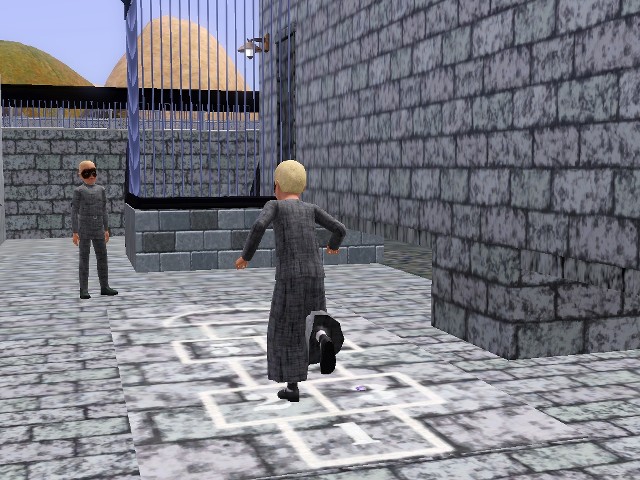 And presently Shi and Primrose were hopping happily on the grid Salvia had marked out for them.
And presently Shi and Primrose were hopping happily on the grid Salvia had marked out for them.“What else can I teach them? They need to play,” Salvia thought to herself.
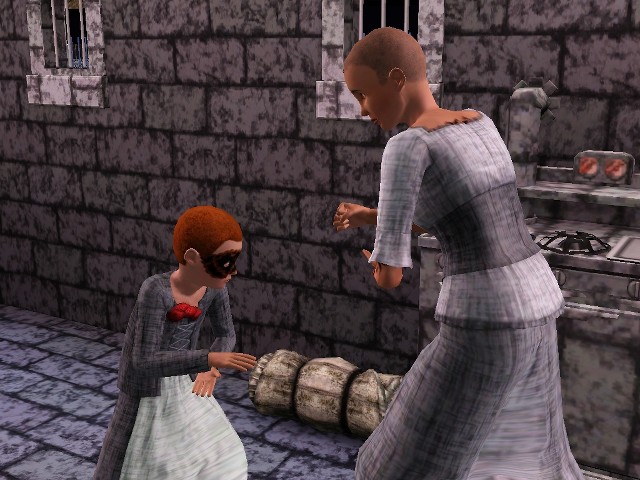 Ni was the nearest child when the idea of rock, paper, scissors came to her, and she began to teach Ni the game. Ni played with great earnestness.
Ni was the nearest child when the idea of rock, paper, scissors came to her, and she began to teach Ni the game. Ni played with great earnestness.“You are a funny little bird,” Salvia said to Ni, as they played.
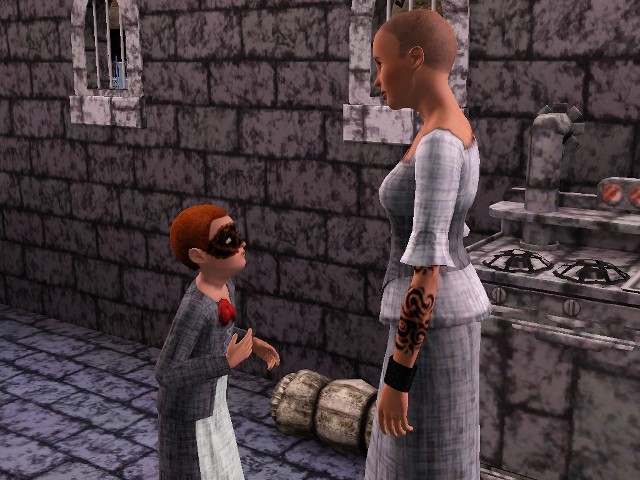 “What sort of bird?” Ni asked. And Salvia suddenly realised that although she had spoken casually, Ni was like a bird.
“What sort of bird?” Ni asked. And Salvia suddenly realised that although she had spoken casually, Ni was like a bird.“A robin,” she said. “A lovely little robin, all determined and brave, even though it’s such a small bird.”
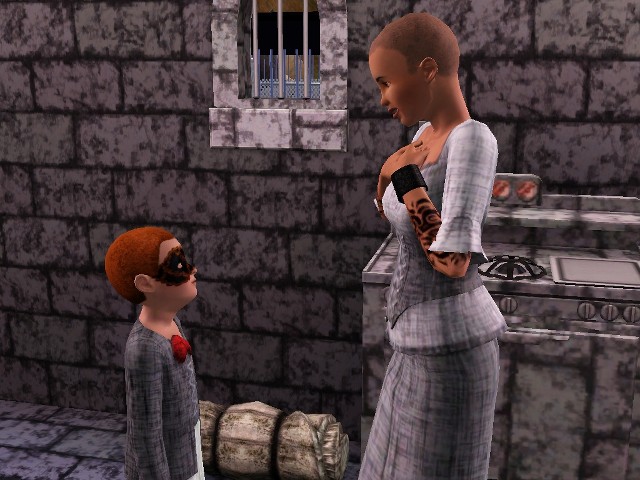 “Robin. That’s you. My little Robin.”
“Robin. That’s you. My little Robin.” And the child’s face lit up with a small smile, even as Salvia thought, “What am I getting myself into?”
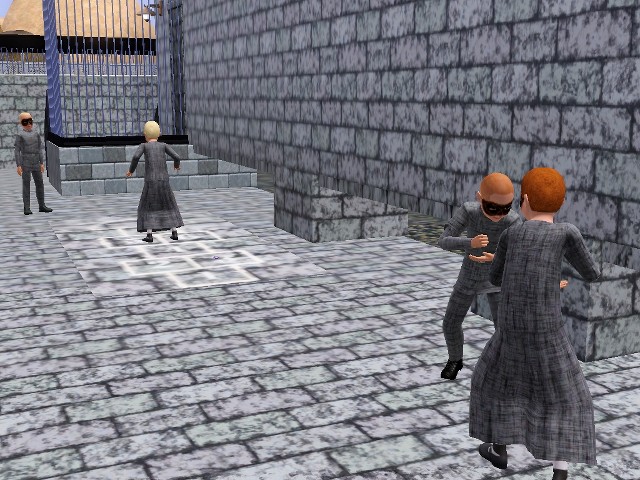 And later on that day, there were two children playing hopscotch, and two more playing rock, paper, scissors. It was still too quiet: they didn’t seem to know how to laugh yet, didn’t seem to feel free to call out to each other, but it was a beginning.
And later on that day, there were two children playing hopscotch, and two more playing rock, paper, scissors. It was still too quiet: they didn’t seem to know how to laugh yet, didn’t seem to feel free to call out to each other, but it was a beginning.
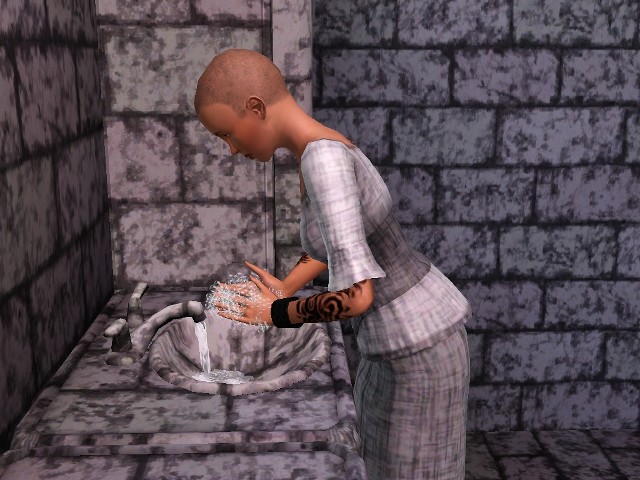 Salvia finished cleaning up the bench, sink and cooker, and washed her hands afterwards. The dark, heavy bracelet on her wrist caught her eye again, and she looked hard at it. It was important. She knew it was. The memories hovered tantalisingly out of reach, and she tried to force them to the surface. She hadn’t been wearing it when she went to the Fons Veritatis. But she was wearing it now. So Rubia or Sambucus must have put it on her.
Salvia finished cleaning up the bench, sink and cooker, and washed her hands afterwards. The dark, heavy bracelet on her wrist caught her eye again, and she looked hard at it. It was important. She knew it was. The memories hovered tantalisingly out of reach, and she tried to force them to the surface. She hadn’t been wearing it when she went to the Fons Veritatis. But she was wearing it now. So Rubia or Sambucus must have put it on her.
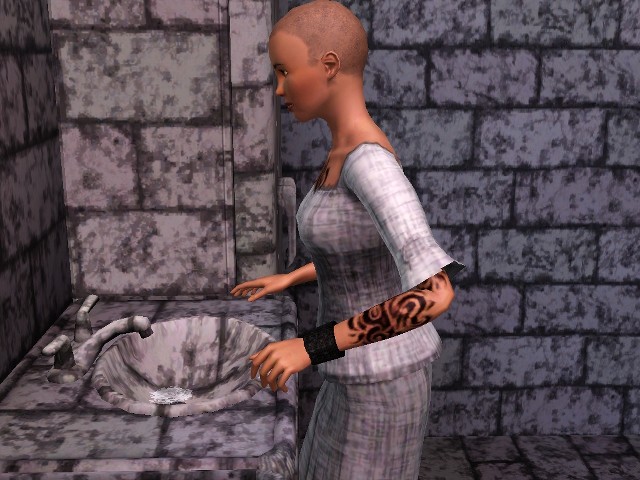 And then, as she straightened up, a few more fragmentary memories came back to her.
And then, as she straightened up, a few more fragmentary memories came back to her.
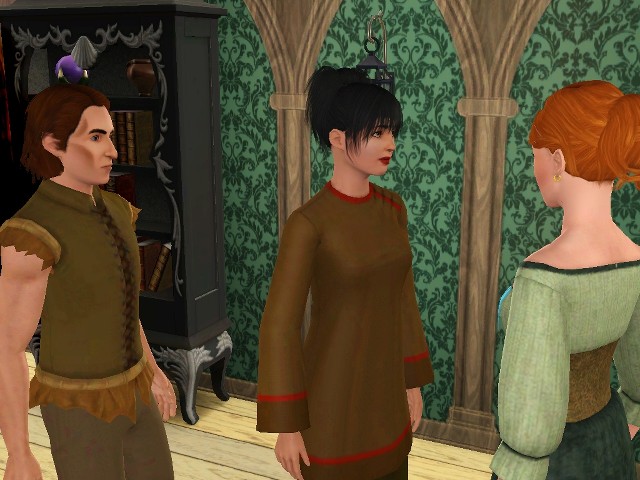 Rubia had found Salvia some different clothes – ones that hid the marks of her behaviour.
Rubia had found Salvia some different clothes – ones that hid the marks of her behaviour.“We can’t let anyone see those, Sambucus. And look – with this hairstyle, and a little make-up, she’ll pass for someone from Estravania.”
Sambucus looked Salvia up and down. “She will. You’ve done a good job there, Rubia. How much longer do we have?”
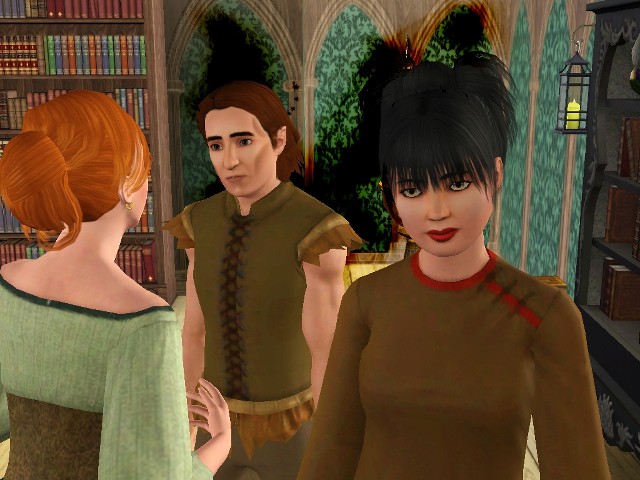 Rubia moved closer to Sambucus. Salvia just stood there. She felt like a puppet, being manipulated by the people round her. It was as though she had no free will anymore, no ability to choose any path for herself.
Rubia moved closer to Sambucus. Salvia just stood there. She felt like a puppet, being manipulated by the people round her. It was as though she had no free will anymore, no ability to choose any path for herself.“You chose the wrong ones,” said a voice in her head. “And now you have to walk them.”
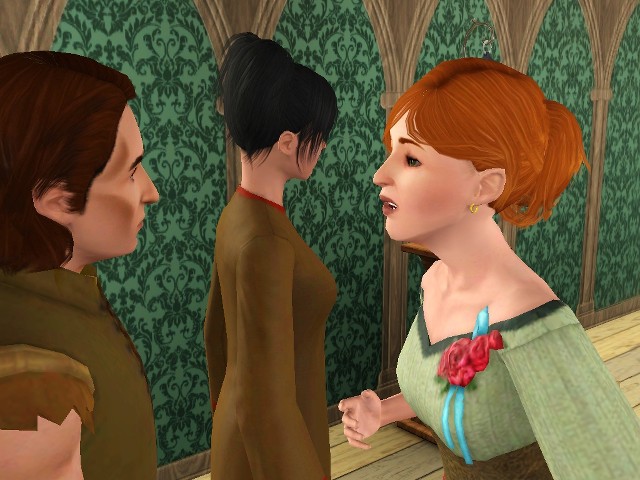 “We don’t have much time. But we have just enough. With this much power in me, I can open the way to both places.”
“We don’t have much time. But we have just enough. With this much power in me, I can open the way to both places.”“Do you suppose she even knows about them?” Sambucus asked, somewhat disparagingly.
Rubia’s face changed. “I hadn’t thought of that. But her family’s not that powerful, nor that well-connected. She might well not know of them.”
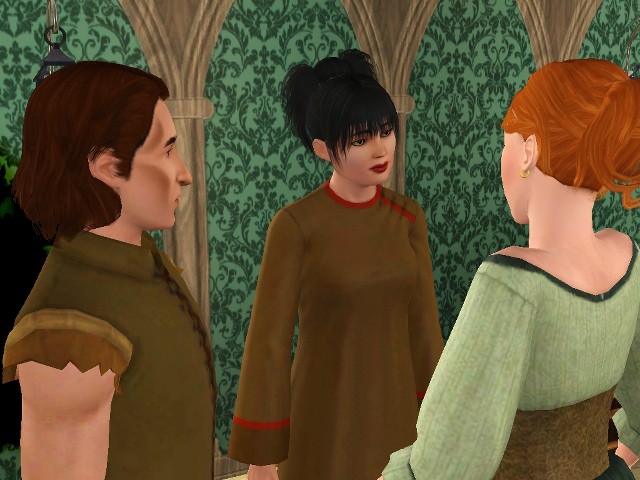 She turned to Salvia.
She turned to Salvia.“Do you know what the Porta Mutantis is?”
Salvia nodded wearily. It was the Exile Gate. You went through it, and either you never returned, or you returned changed beyond recognition. Where was Rubia going to send her? Calamintha had promised to send her somewhere easy, but Rubia wouldn’t settle for easy.
“You have been marked by the Fons Veritatis. Where the Porta Mutantis will send you, I cannot say. Salvia, you’ve become part of something bigger than even I was expecting. You know this island where we live is both an old and a powerful place?”
Salvia nodded again.
“There were the five founders. There are the five First Laws. There are five places of great power in our world, and two of them are on this very island. The Porta Mutantis is one of them, and you will be going to it very soon, but first we must visit the other place – the Hortus Potentium. And there you will have one final choice to make on this world.”
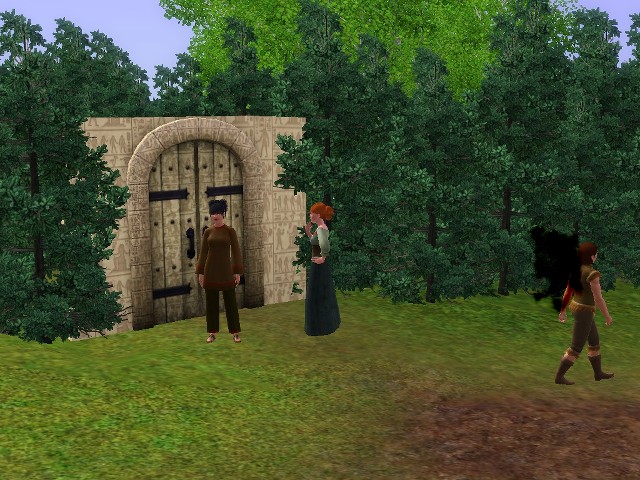 It was a long walk, and Salvia was weary by the time they arrived. She could have sworn that she knew this island like the back of her hand, and yet she had never seen this stone wall, these dense trees, nor the ancient gate in the wall. Rubia shooed Sambucus away.
It was a long walk, and Salvia was weary by the time they arrived. She could have sworn that she knew this island like the back of her hand, and yet she had never seen this stone wall, these dense trees, nor the ancient gate in the wall. Rubia shooed Sambucus away.“She can’t go in here dressed like that. Not with those marks on her. She has to go as one acknowledging the wrong she has done.”
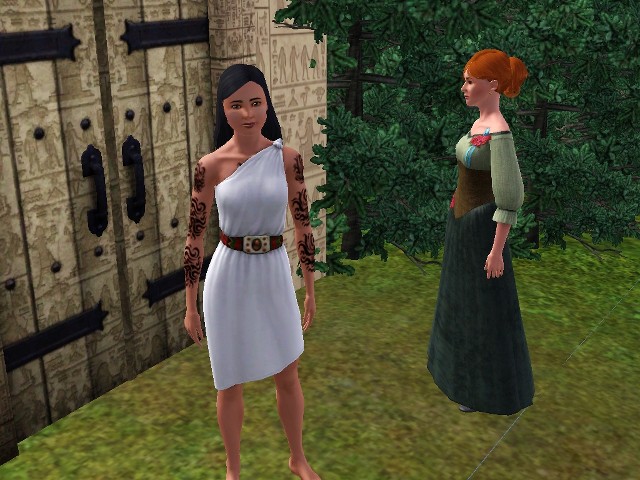 Rubia made Salvia strip completely, then she fastened a length of fine white fabric about her, knotting it on the shoulder and clasping an ornate and heavy belt around her waist. She let Salvia’s hair down, and cleaned all the make-up from her face. Then she called Sambucus back.
Rubia made Salvia strip completely, then she fastened a length of fine white fabric about her, knotting it on the shoulder and clasping an ornate and heavy belt around her waist. She let Salvia’s hair down, and cleaned all the make-up from her face. Then she called Sambucus back.“Listen, Salvia. There are two entrances to the Hortus Potentium. This is the first of them. Be very careful what you say here. It is not a place to be treated lightly. Listen well, and think long, before you speak. You ask questions at your peril. Sambucus may speak freely here, but you, Salvia, may not.”
Salvia was going in there with Sambucus? Her already heavy heart sank yet further.
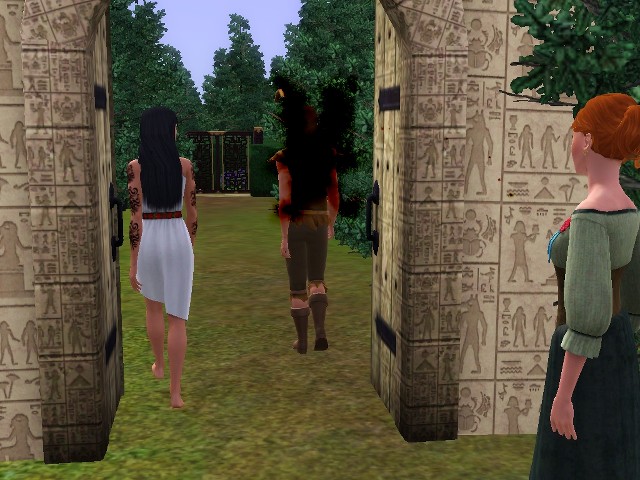 Rubia opened the gates for them with a word that made the air round them hum, and Salvia walked through them with Sambucus, the short, springy turf soft and cold under her bare feet. Rubia hadn’t needed to warn her to be careful: the marks on her arms and body were throbbing in response to the place. But she was grateful to Rubia for telling her how to be careful. She glanced sideways at Sambucus walking beside her, his face as forbidding as ever. Why was she here? With him?
Rubia opened the gates for them with a word that made the air round them hum, and Salvia walked through them with Sambucus, the short, springy turf soft and cold under her bare feet. Rubia hadn’t needed to warn her to be careful: the marks on her arms and body were throbbing in response to the place. But she was grateful to Rubia for telling her how to be careful. She glanced sideways at Sambucus walking beside her, his face as forbidding as ever. Why was she here? With him?
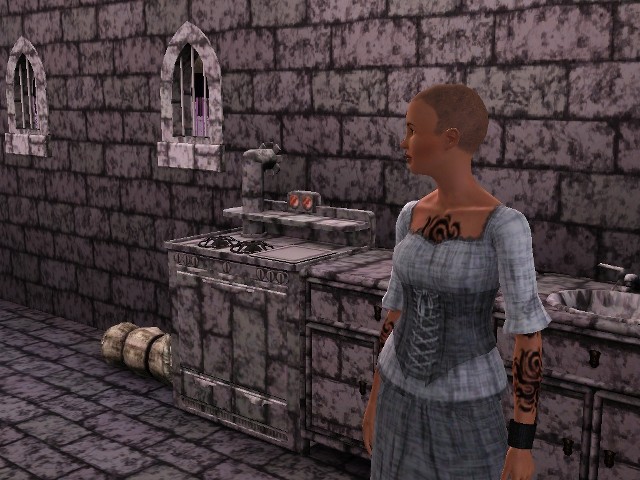 And that was it. It was maddening, the way her memory came and went, as if someone was flicking a switch inside her head. But she felt sure that Sambucus had given her this bracelet, had put it on her. And that it was terribly significant, terribly important. And she had promised him something in return, but she couldn’t remember what! Panic rose in her as she tried vainly to remember.
And that was it. It was maddening, the way her memory came and went, as if someone was flicking a switch inside her head. But she felt sure that Sambucus had given her this bracelet, had put it on her. And that it was terribly significant, terribly important. And she had promised him something in return, but she couldn’t remember what! Panic rose in her as she tried vainly to remember.“I don’t want to break yet another promise,” she cried out to the silent walls.
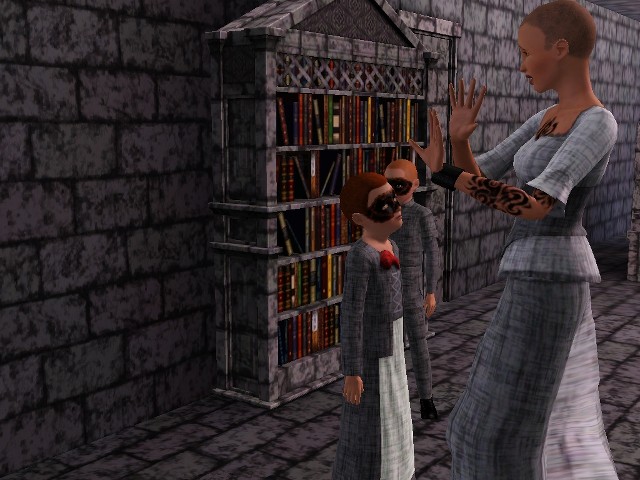 Robin actually came to talk to Salvia about playing rock, paper, scissors! She brought Go with her, but he stood there, silent, almost as if he was waiting to be punished for enjoying himself.
Robin actually came to talk to Salvia about playing rock, paper, scissors! She brought Go with her, but he stood there, silent, almost as if he was waiting to be punished for enjoying himself.“Robin,” Salvia asked. “Did all the Roku forbid you to play? Were they all horrible to you?”
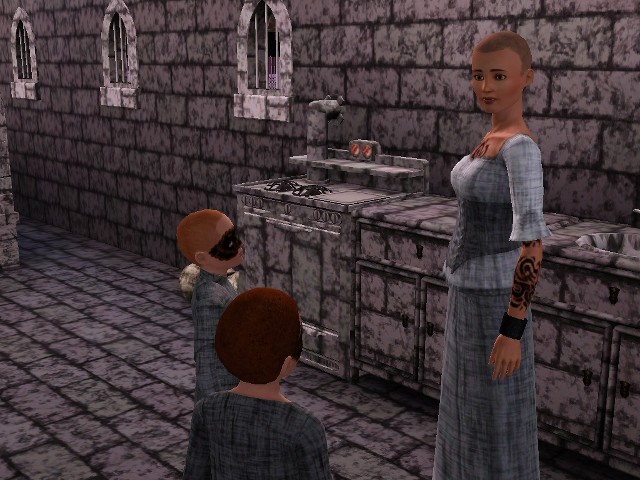 “Not the first one,” said Robin. “She loved us. She told us so.”
“Not the first one,” said Robin. “She loved us. She told us so.”Salvia caught her breath in surprise. “Tell me a little about her.”
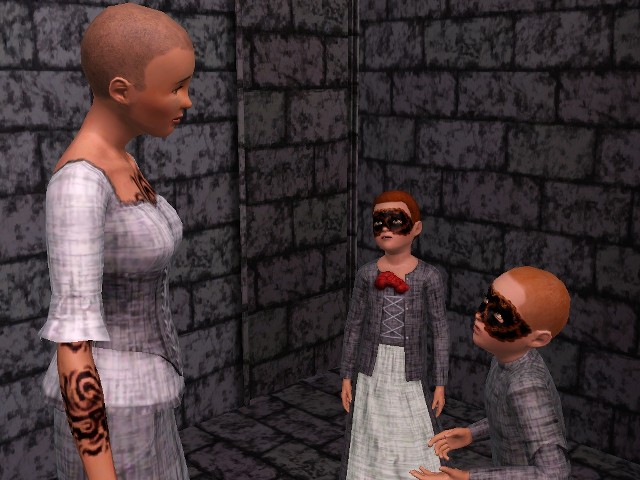 But it was Go who suddenly broke his silence and spoke, the words and memories coming from somewhere deep within him.
But it was Go who suddenly broke his silence and spoke, the words and memories coming from somewhere deep within him.“She was the first one. She was here before they put these masks on us. She used to hug us and sing to us at bedtime. I do remember that, though I don’t remember the songs any more. The she died, and the others came and said that we were not people, we were it. And when we had to go to school, they put these masks on us, so that everyone would know to keep away from us.”
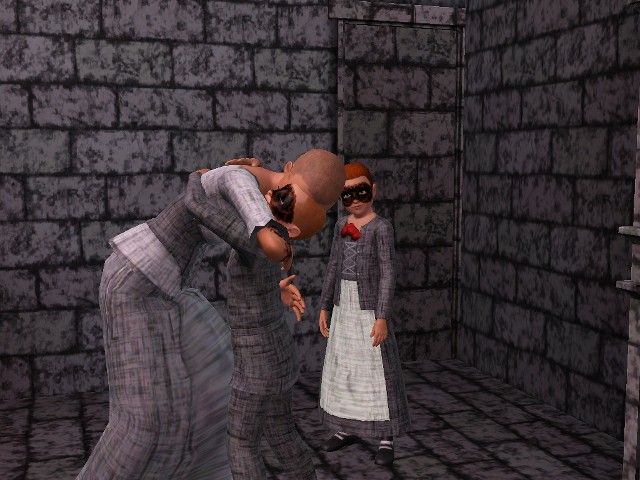 Salvia’s eyes filled with tears, and for the second time since she arrived, she hugged one of the children.
Salvia’s eyes filled with tears, and for the second time since she arrived, she hugged one of the children.
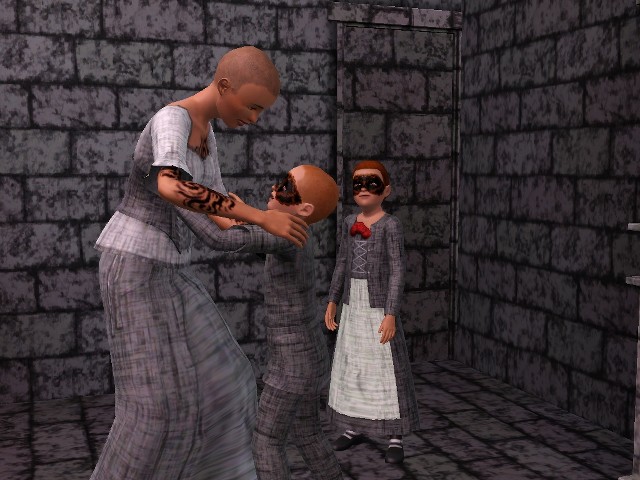 “Why are you crying?” Go asked, as she let him go, and he looked straight at her face for the first time.
“Why are you crying?” Go asked, as she let him go, and he looked straight at her face for the first time.“Because you were loved, and you lost the person who loved you. That makes me very sad.”
“No-one has cried for us since the first Roku died. Salvia, will you stay please? Don’t go away like all the others do.”
